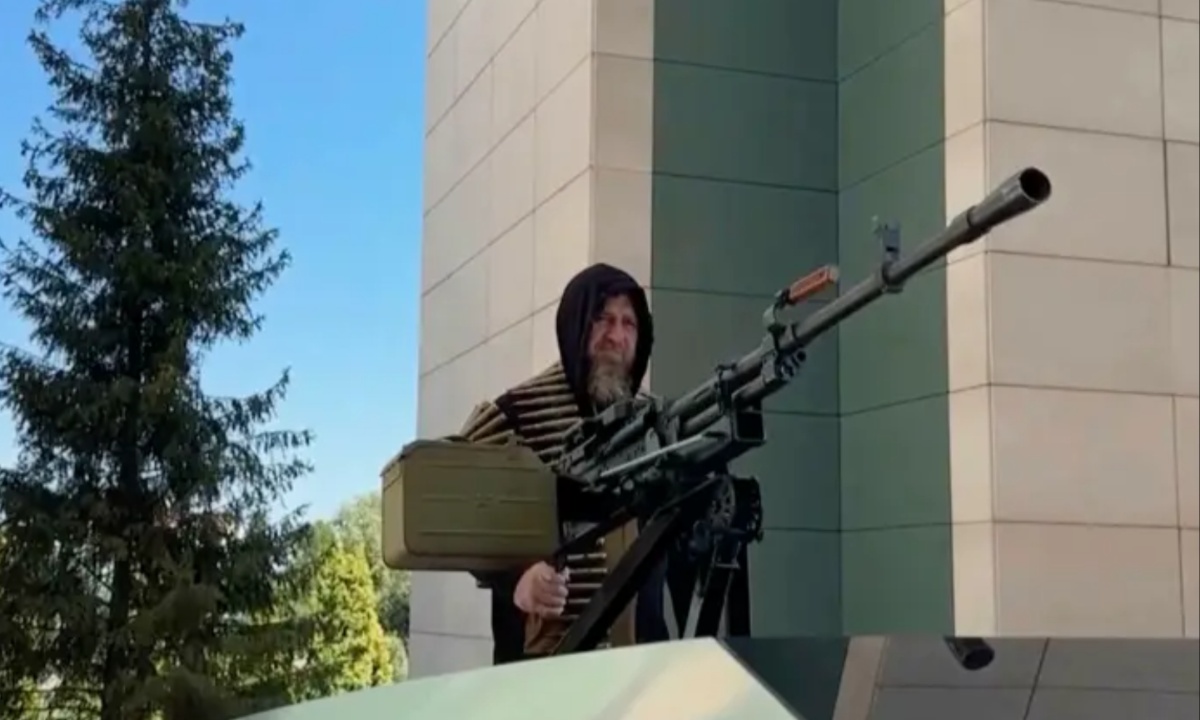The Tesla Cybertruck, often criticized for its unconventional design reminiscent of a poorly rendered video game vehicle, has recently become a focal point of controversy due to its use in the ongoing conflict in Ukraine. Ramzan Kadyrov, a Chechen warlord and staunch ally of Vladimir Putin, claimed to have outfitted a Cybertruck with a machine gun and deployed it in combat.
However, he asserted that Elon Musk remotely disabled the vehicle while it was on the front lines, forcing it to be towed away after initially performing well. Kadyrov’s allegations have drawn significant media attention, especially given the unusual context of a warlord using a high-tech electric vehicle in battle.
Kadyrov expressed his frustration over the situation, characterizing Musk’s alleged action as ungracious. He remarked, “What Elon Musk did was not nice,” and suggested that it was hypocritical for Musk to give a gift and then disable it.
This accusation led to Kadyrov labeling Musk’s actions as “not manly,” highlighting the absurdity and tension surrounding the relationship between the billionaire entrepreneur and the Chechen leader. Musk, for his part, vehemently denied ever gifting a Cybertruck to Kadyrov, taking to social media to dismiss the claims with a sarcastic tone, suggesting that the notion of donating such a vehicle to a Russian general was ridiculous.

Despite Musk’s denial, Kadyrov continued to showcase his armed Cybertrucks, sharing footage that portrayed them as operational and effective in combat. In a recent Telegram post, he displayed two Cybertrucks equipped with guns, boasting about their maneuverability and reliability during military operations in a wooded area of Ukraine.
His posts are seen as attempts to leverage the visibility of the Cybertruck for personal propaganda, declaring it as the ideal vehicle for combat scenarios and effectively using the situation for what he calls “better advertising for the Cybertruck.”
Kadyrov’s assertions may be an exaggeration or a strategic move to provoke Musk, especially given Musk’s ongoing support for Ukraine through initiatives like Starlink, which has provided crucial internet access during the conflict.
Analysts suggest that Kadyrov’s claims about receiving the vehicles as gifts may be inflated or fabricated to create a narrative that undermines Musk’s positive reputation in the context of the war. This speculation is further fueled by Kadyrov’s known loyalty to Putin and the political motivations behind his statements.
The situation raises questions about the practical capabilities of the Cybertruck in combat. Military experts have expressed skepticism regarding its suitability for frontline operations, noting logistical challenges, such as the lack of charging stations in combat zones like Donbas.
Additionally, the high price tag and Western sanctions complicate the acquisition of such vehicles in Chechnya. Ultimately, the narrative surrounding the Cybertruck’s use in Ukraine serves as a bizarre intersection of technology, warfare, and political theater, underscoring the complexities and absurdities of modern conflicts.


